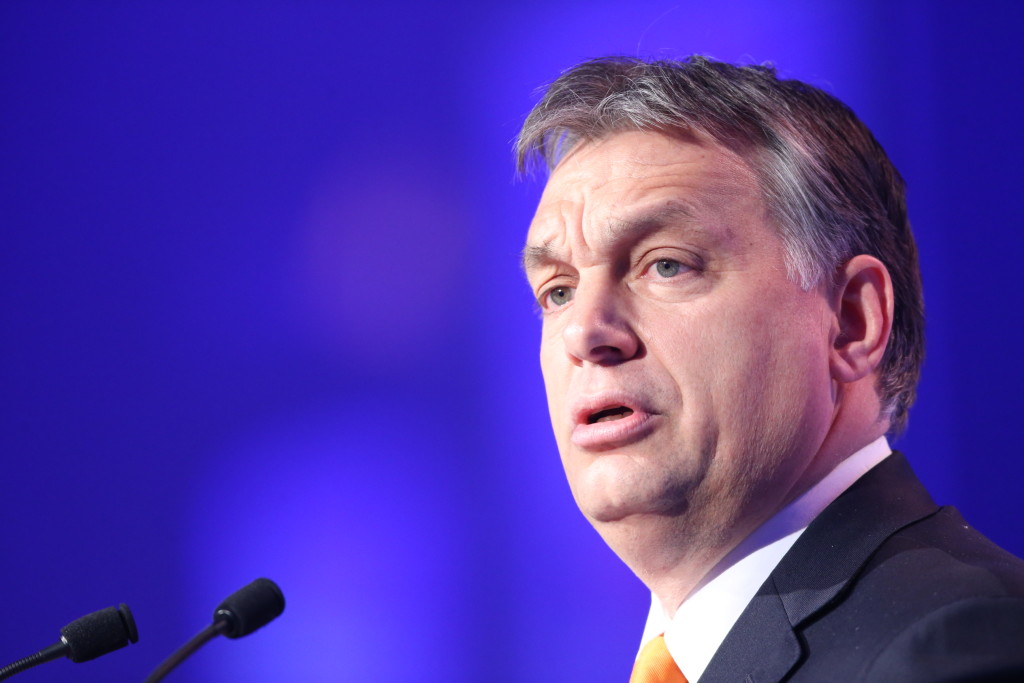A government-initiated referendum on European Union migrant quotas will be held in Hungary on October 2, 2016. The question it will pose is: “Do you want to allow the European Union to mandate the resettlement of non-Hungarian citizens to Hungary without the approval of the National Assembly?”. There were and are discussions whether it is legitimate or has any legal consequences, but that is not the point. It is a part of the Hungarian government’s campaign to use the refugee and migrant crisis (and the dissatisfaction of citizens with the EU) to gain back voter support – and it works very well.
Other parties are divided by the referendum: far-right, radical Jobbik urges to vote ‘no’; green LMP does not agree with the system of mandatory quotas, but do not want to tell their voters how to vote; only Liberals are campaigning for ‘yes’. Parties of left-liberal opposition are calling for a boycott in order not to have a valid result and they try to frame the whole case as if it was about Orbán’s attempt to lead Hungary out of the EU.
Among these circumstances the annual Tusványos Free Summer University was organized, an important event for governing Fidesz party (since 2010) and Hungarian politics every year: party prominents, politicians, young and not-so-young professionals and intellectuals gather to listen to what the leaders of Fidesz have to say. And usually they say quite memorable things: two years ago PM Viktor Orbán gave his famous speech about illiberal democracy, last year he talked about the migrant crisis in a way not many did before him. This year he addressed not the Hungarian but the European audience instead.
Victor Orbán made sure everyone will remember the 2016 Summer University: he openly endorsed Donald Trump, being the first prime minister to do so. Apart from this, the speech itself did not have much novelty, but the absence of some issues and approaches made it still important. In previous years PM’s speeches always addressed Hungarian politics and political actors, but not this time. He did not even mention the referendum until the very end. Instead, Mr Orbán talked about and to Europe: he said the words ‘Europe’ and ‘European’ three times more frequently than ‘Hungary’ or ‘Hungarian’.
This time, he continued what was the main consequence (according to him) of the Visegrad countries summit four days before: the end of the global leadership of the EU and the position of Visegrad countries on migration. This made it clear that Mr Orbán is using the refugee crisis to re-organize the Visegrad cooperation in order to create an alternative – Central Eastern European power against the old member states of the EU.
He wishes to implement on a European level exactly the same scenario which worked for him very well in Hungary: identifying a problem and monopolizing its interpretation and solutions. As he was the first in Hungary to talk about the refugee crisis in early 2015, he tries to use the post-Brexit atmosphere to address the flaws and failures of the EU. And there is a reason why he can talk about these issues: an important part of his criticism of the EU as well as some of his concerns are shared by many European citizens.
Based on the Visegrad summit and his speech, PM Orbán is most likely to monopolize in Hungary the issues related to the future of the EU. Positioning himself and his allies against ‘the old European elites’, justifying the language he has been using for years, pioneering in addressing and undertaking certain (usually very complex) topics are all a part of his strategy: making him look like he understands and, more importantly, is able to solve all problems. The leaders of the EU and anyone interested in and concerned about the future of Europe has a great responsibility not to let the Prime Minister dominate the narrative. But in order to do this they have to admit there are some areas where the European cooperation should be reconsidered.
However, the end of the EU is not Orbán’s interest, neither it is to lead Hungary out from the EU. It provides him resources and opportunities which he would not risk losing. He is talking about “Europe losing its global leadership” and “not being able to protect its own citizens anymore”, while promoting the uniqueness and vitality of Central Europe in order to play a more important role within the EU – not outside of it. In this fight, his tools are fear and insecurity – just like they were with the refugee crisis last year. Based on this Mr Orbán is most likely to use the time left until the referendum to emphasize this opposition of ‘old and new’, ‘central and peripheral’ countries in the EU. If the Hungarian opposition wants to fight this narrative, they should find an interpretation of the referendum which is not about whether to leave or not the EU but to provide a European vision with which their voters can identify – and which the EU itself could also use.



